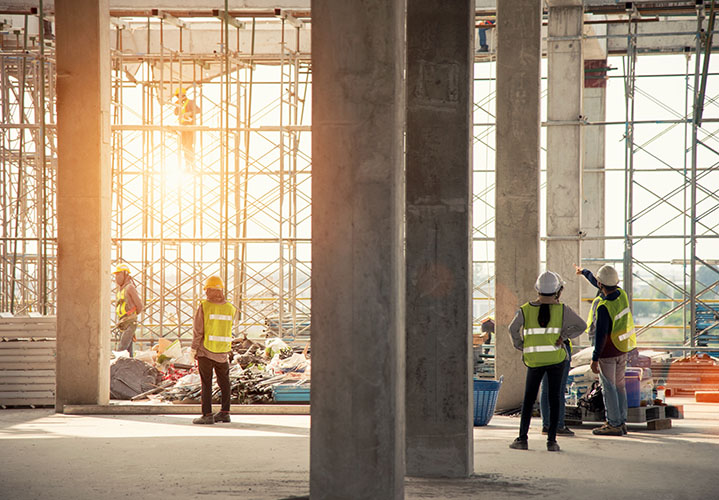Earlier this week (Monday 5 July 2021), the long-awaited "Building Safety Bill" (the Bill) was introduced to the House of Commons and given its First Reading.
Background
Following the Grenfell Tower fire in 2017, which tragically took the lives of 72 people and injured over 70 people, the government commissioned an independent review, led by Dame Judith Hackitt, looking at the Building Regulations and fire safety, with a particular focus on high-rise residential buildings. In April 2020, the government published its ‘Building a Safer Future’ consultation response and the Bill now gives effect to these policies.
The Bill contains provisions intended to secure the safety of people in or about buildings and to improve the standard of buildings, as well as acting as a vehicle for wider improvements including amendments to the Architects Act 1997, the Housing Act 1996 and to amend provision about complaints made to a housing ombudsman.
The Bill
The Bill’s objective is to strengthen the whole regulatory system for building safety, which will be achieved by ensuring there is greater accountability and responsibility for structural safety issues throughout the lifecycle of buildings. This will involve:
- Establishing a new Building Safety Regulator in England to implement and oversee a new, more stringent regime for higher-risk buildings and drive improvements in building safety and performance standards in all buildings
- Ensuring residents have a stronger voice in the system, and establishing additional protections for leaseholders in relation to financing remediation works
- Increasing access to redress through the Defective Premises Act 1972
- Driving industry culture change and incentivising compliance
- Strengthening the Fire Safety Order
- Providing a stronger and clearer framework for national oversight of construction products
A small number of the proposals are detailed further below:
Extended limitation periods and duties relating to work on dwellings
The Bill is more than doubling the amount of time, from six to 15 years, within which legal action may be brought for defective construction work. The changes will apply both prospectively and retrospectively.
Additionally, new provisions will set out that the person who takes on work to a relevant building owes a duty to the person for whom the work is undertaken and any person who holds or subsequently acquires a legal or equitable interest in a dwelling in the building (this includes homeowners and leaseholders). The duty applies to work carried out directly to a dwelling, and to work done to other parts of a building (such as to the communal parts of a block of flats). The section sets out that the person undertaking the work owes a duty to ensure that, as regards the work, the dwellings in the building are fit for habitation when the work is completed. Additionally, should a person doing work to a relevant building arrange for another person to take on that work (e.g. subcontracting part of the project), those persons also owe a duty for the work they take on.
The 15-year limitation period will start when the work is completed. If a person subsequently carries out work to rectify the original defective work, the 15-year limitation period starts again when that further work is finished.
Although this will be a welcome change for many home owners, the longer period will not be of use if the developer responsible is now insolvent.
New Homes Ombudsman scheme
There is presently no statutory obligation upon developers of new build homes in England specifically to belong to a redress scheme, nor a way to enforce the requirements. This represents a significant gap for purchasers of new build homes.
The Bill includes provisions that allow relevant owners of new build homes to escalate complaints to a scheme to be known as the New Homes Ombudsman scheme. The Bill introduces a power to require developers, to become, and remain, members of the New Homes Ombudsman and to provide information to new build homebuyers about the scheme, and makes provision for sanctions should developers breach these requirements. Any complaint made against a scheme member (developers) will be investigated and determined by an individual who will act as an independent ombudsman.
Architect competence
The Bill includes provisions to improve the competence of architects by introducing a power for the Architects Registration Board (ARB) to monitor the competence of architects on their Register. To use the title "architect", a person must be on the ARB’s register. The ARB will set the criteria, in conjunction with other relevant bodies (such as the Royal Institute of British Architects) and if an architect does not meet these requirements or is found to be guilty of professional misconduct or serious professional incompetence, the ARB will have the power to remove them from the register.
Construction products
The current regulatory framework for construction products, derived from EU law applies to products where a designated standard has been adopted or a UK Technical Assessment applies – some 400 product families. The Bill provides powers so that all construction products marketed in the UK fall under a regulatory regime, allowing them to be withdrawn from the market if they present a risk.
What happens next?
MPs will next consider the Bill at Second Reading. The date for Second Reading has not yet been announced.

 Lauren Melnyk
Lauren Melnyk